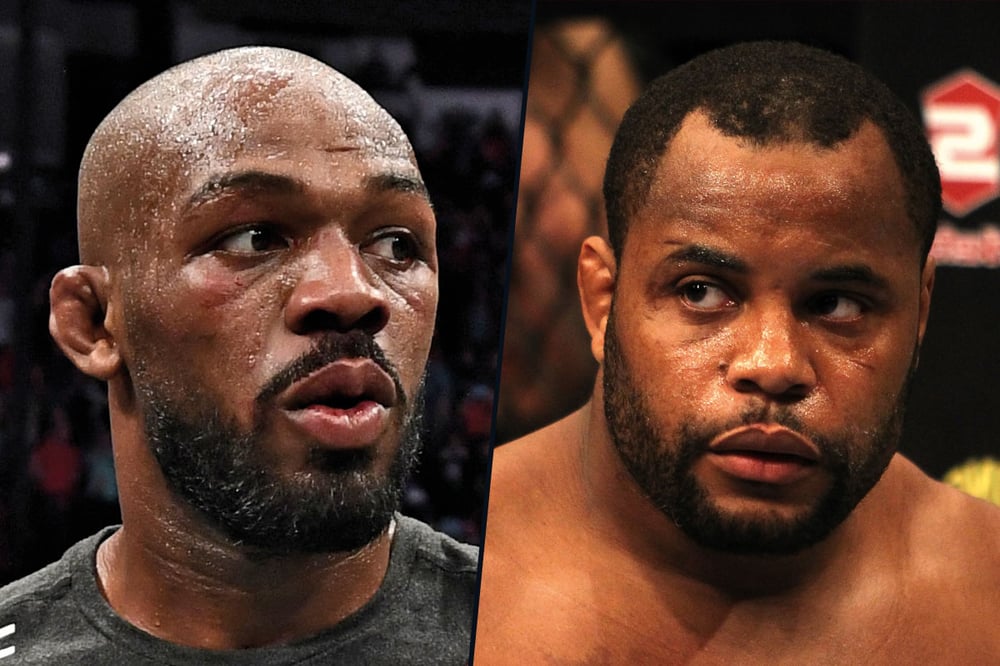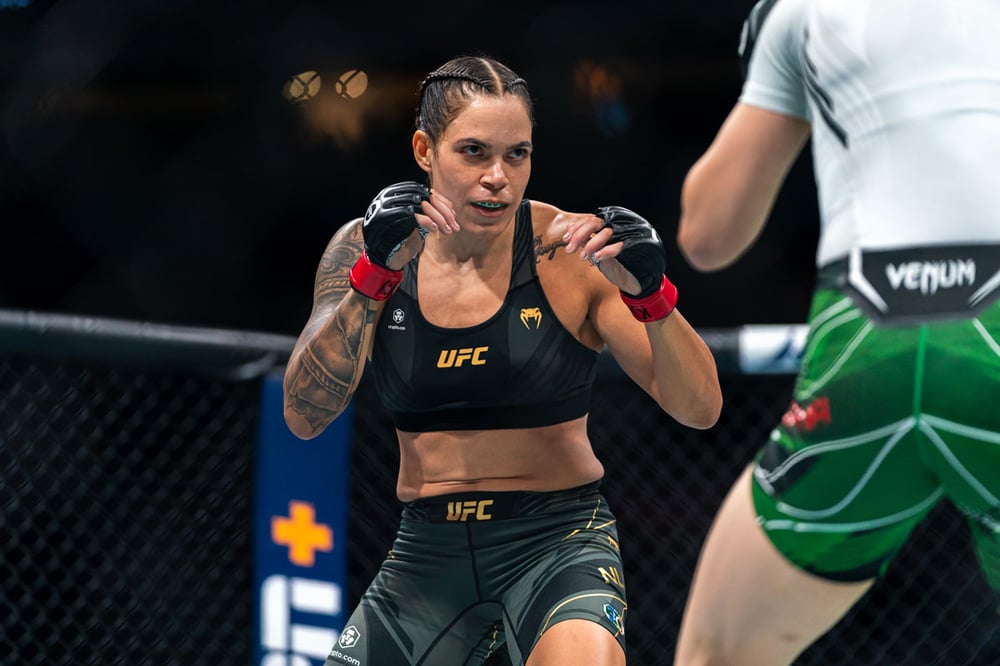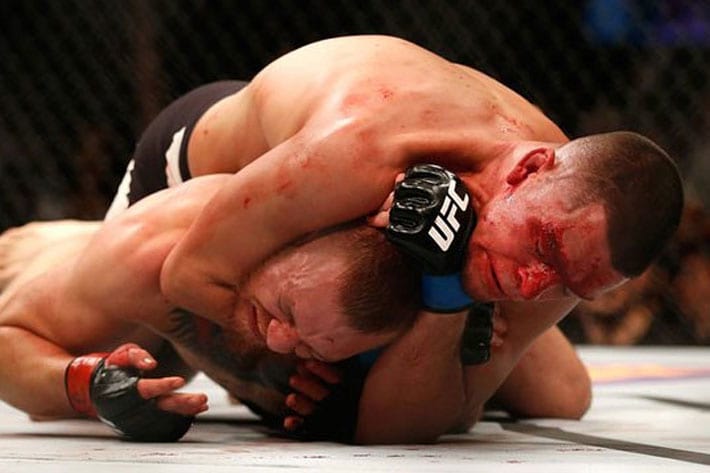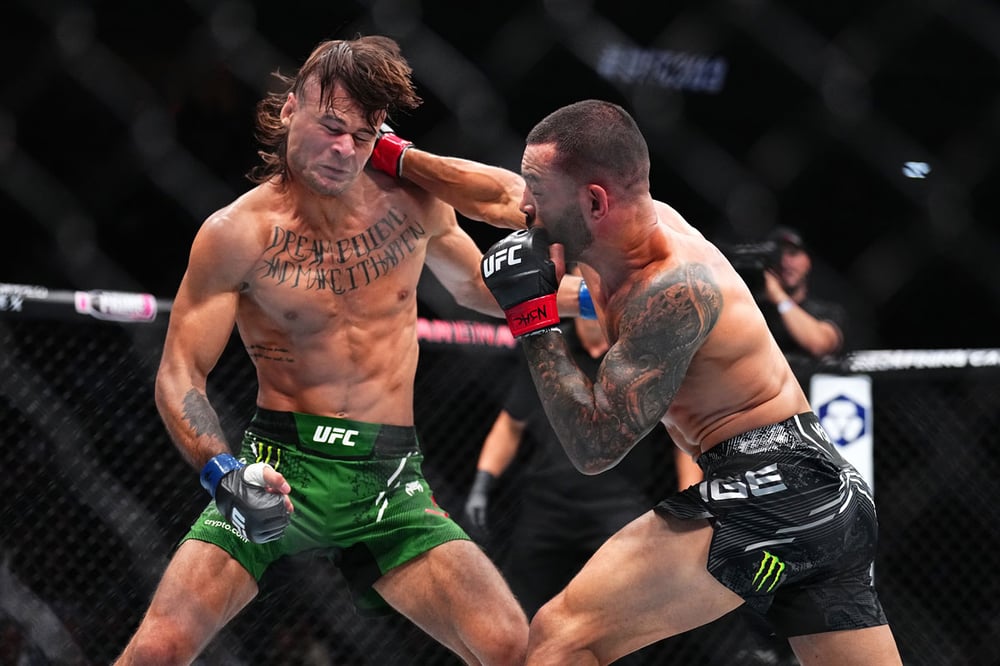
Issue 207
July 2024
Kyle Dimond looks at the UFC's most high-profile fight cancellations to analyze their impact and how the promotion received the dreaded news that it’s time for a plan B.
Few things can bring bigger heartbreak for fight fans than hearing that a big match-up has been canceled. This pain is there because of their love for their favorite fighters. It’s something every fan understands. Injuries are common in MMA; sometimes, an athlete is forced to withdraw. Fortunately, the MMA leader has a track record for turning lemons into knockout punches. And while few things crush fight fans like a cancelation, the UFC's bounce-back ability is like a video game boss fight—always ready with a secret backup level to keep the show poppin'.
MISSION IMPOSSIBLE
There are very few cases in UFC history where a fight was canceled, and a workaround wasn’t possible. However, even when a solution is found, sometimes the best option B will still be a margin below the original plan. The saga between Jon Jones and Daniel Cormier in the lead-up to their rematch was a perfect example of this. The two men had built their rivalry to a fever pitch, and there was an argument to be made that their second meeting would be a clash between the two best in the world. 
A few weeks before UFC 197, Cormier was announced to be out of the rematch. While the first option of Anthony Johnson would have been a great replacement, this didn’t work out, and Jones ended up returning against Ovince Saint Preux. Ultimately, the event still featured the return of “Bones” and a flyweight title co-main event between Demetrious Johnson and Henry Cejudo. There was simply no fight that would live up to the expectations and hype that Jones vs. Cormier 2 would generate.
This is the same case for their rescheduled fight at UFC 200. Once the plan to have Conor McGregor headline wasn’t possible, the next biggest fight for this historic night was the light heavyweight title rematch. Just three days before the event, Jones was pulled from the card. Though the UFC was able to keep Cormier on the card against Anderson Silva, many believed the event now lacked the big-name pizzaz.
With fights of serious magnitude, there isn’t a solution that can fill the void, and this will impact the hype, ticket sales, and PPV buys for fans specifically tuning in for that one contest. Fortunately, the strength of a UFC card speaks for itself, but when you have a main event everyone is buzzing about, you’re reaching a new demographic than fans that would tune into whether or not that particular match-up is taking place. Take the incredibly unfortunate events that led to Amanda Nunes pulling out of her bantamweight title defense against Valentina Shevchenko on the day of UFC 213, citing sinus problems.

Things like that are unavoidable, and there is no plan for such an occurrence on the day of the event. Despite this, ask most fight fans what they remember from that card, and they’re unlikely to go straight to the huge women’s title fight that didn’t happen on that occasion. Instead, with the card featuring two title fights, Robert Whittaker and Yoel Romero put on a memorable main event instead.
PULLING A RABBIT OUT OF A HAT
Incredibly, the UFC hardly ever announces that a big fight has been canceled without already having a new plan ready to go. Sometimes, this means they can counter the disappointment of losing a fight with the surprise of a new one. UFC 294 & 295 were great examples of this, captured in the documentary series "Fight Inc: Inside The UFC." Just two weeks out from UFC 294, two Brazilian fighters at the top of the card were forced to withdraw due to injuries. Suddenly, with Charles Oliveira and Paulo Costa out, the promotion was left without a main and co-main event.
What followed was one of the best fight replacements they have ever put together. Kamaru Usman added extra intrigue to the card by moving up a weight class to face Khamzat Chimaev, and Alexander Volkanovski would step into the main event for a rematch of one of the best fights of the year against lightweight king Islam Makhachev. The same thing happened the following month when, at UFC 295, Tom Aspinall and Sergei Pavlovich were added to the card as an interim title fight after Jon Jones withdrew from his main event clash with Stipe Miocic. With Alex Pereira already set to defend his light heavyweight title against Jiri Prochazka, which was a no-brainer to take the main event billing, the card still shaped up to have two of the best fights possible in the sport at that moment.
THE HERO OF THE HOUR
Just like when Amanda Nunes stepped into the main event of UFC 200 and delivered a performance that would kick start her iconic run at the women’s bantamweight champion, sometimes a late notice switch around can lead to iconic moments. This is one of the things that makes MMA different from every other sport. Everything can change in an instant, but you can always guarantee that someone is willing to put their hand up to seize the moment.
Fighters have earned career-defining wins by stepping in on short notice. Jon Jones was a replacement for Rashad Evans when he became the youngest UFC champion in the promotion’s history. Michael Bisping finally achieved his dream of being England’s first titleholder when he avenged his loss to Luke Rockhold at UFC 199. For the most obvious one, Nate Diaz became a global superstar overnight when he replaced Rafael Dos Anjos and submitted Conor McGregor at UFC 196.

For recent examples, look back at what Diego Lopes and Dan Ige did at UFC 303. Ask most fans their pick for fight of the night going into International Fight Week, and most would have said the co-main event between Lopes and Brian Ortega, which in itself was a late-notice addition to the card after Conor McGregor withdrew from his fight with Michael Chandler. Pereira vs Prochazka 2, similar to Jones vs Cormier 2, is about as good as you can get without having “The Notorious” in the main event. However, the UFC still wanted to add more firepower to June 29 to excite fans. Then, while the event was already taking place, Ortega vs. Lopes was off, and through one of the most unique nights in UFC history, Dan Ige made his way to the arena, weighed in, and fought on the same night.
The fight was entertaining, but it will forever be immortalized for the story of how both men faced one another on just a few hours’ notice. There would have been fans who made the trip to International Fight Week in Las Vegas to see the likes of McGregor and Chandler, who were incredibly disappointed to hear the news that they wouldn’t be fighting. In the cases of injury, illness, or personal tragedy, the UFC can’t help this, but they can give you something so good, either on paper or when reflecting after the fact, that makes sure that the event still over-delivers.
A NEW CHALLENGER APPROACHES
One of the ways that the UFC has started to prepare secondary options in case things like injuries happen is by having back-up fighters weigh in for particularly big fights where there aren’t other top contenders in that weight scheduled on the same card. When Tony Ferguson was injured during UFC 223 fight week, Al Iaquinta stepped into the main event to face Khabib Nurmagomedov because he was already set to compete at lightweight on the same night. This strategy means that, if we go back to UFC 295 last November, Sergei Pavlovich was already in New York ready to make weight, making it easier to formulate the next best option.
Back-up fighters aren’t the fix to every problem and will not be viable for every big fight. Injuries and cancellations happen, but when they do, the UFC has a track record of implementing several counterbalances to reduce the impact this has on the fans and the fighters who can no longer compete despite being ready to go. A fighter already on the card may step in, a replacement could be found, or in some cases, the fight will simply be rescheduled, like when Nate Diaz had his fight with Leon Edwards pushed back a month to UFC 263.
MAKING THE BEST OF A BAD HAND
While there isn’t always a perfect alternate that can be activated, you can always guarantee you’ll get the next best available bout. Aside from the outlying case of UFC 151, where the event was scrapped after Jon Jones declined to fight Chael Sonnen as a replacement opponent, the UFC’s strategy has always allowed fighters to step into the spotlight and deliver. Fight fans worldwide were devastated to hear that Brian Ortega wouldn’t be fit to compete at UFC 303. By the night's end, they came away singing the praises of Diego Lopes and Dan Ige.

In the UFC, there is always someone. The roster is that powerful. One person’s injury is another's opportunity, and the MMA leader wouldn’t have been able to have a track record of having just one PPV card get canceled in its history due to a main event cancellation if it wasn’t for people stepping up. While reading that headline or hearing that announcement can be disappointing, with some of the greatest moments in the sport's history coming courtesy of fighters who answered the call, the fans tend to win either way. Even if you don’t know what you want, you’ll be rewarded with something you didn’t know you needed. The UFC's ability to pivot and deliver new match-ups showcases the true spirit of the sport. Like a well-prepared gamer with a cheat code, they always have a backup plan that keeps fans engaged and excited. The roster's depth ensures there's always a hero ready to step up and seize the moment, turning potential disappointments into unforgettable fight nights. So, while injuries and last-minute changes are inevitable, the show must go on—and in the UFC, it always does, with a little extra swagger.










